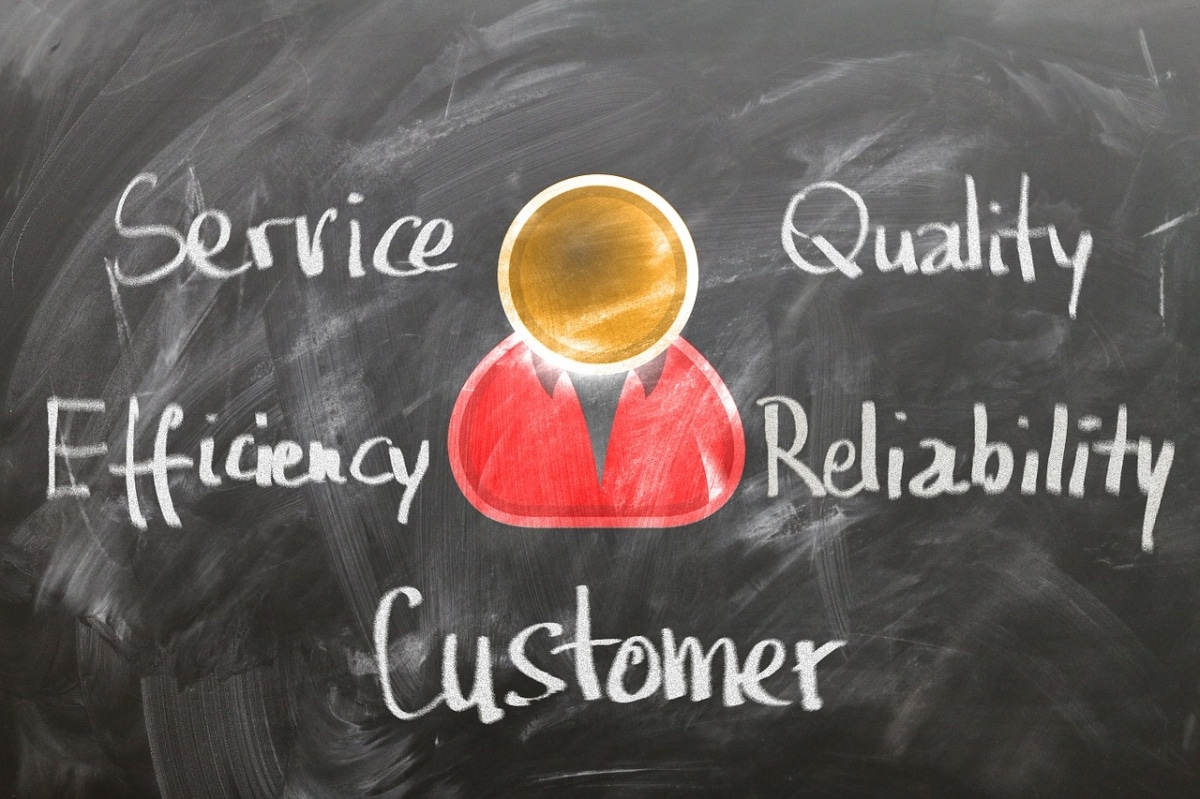7 Ways to Prevent Call Center Burnout

Customer support isn’t an easy profession. Agents need to be patient, positive and helpful at all times. Constant pressure of fulfilling customers’ needs, handling unhappy clients and working long hours often leads to what is known as customer center burnout.
In fact, according to JeffToister portal, burnout is the second highest workplace risk agents face. With 74 % probability of happening.
Continue reading if you want to know how you can eliminate call center stress to the minimum.
What Is a Call Center Burnout?
Call center burnout occurs when employees go through an enormous amount of stressthat is not communicated and handled well. They eventually start to feel apathy towards their work.
Medical literature still debate on whether burnout originates in other psychological conditions or is triggered by environmental factors. Either way, the term that originates in the 70’s was finally recognized by the World Health Organization (WHO) around 50 years later, in 2019.
Effects burnout has on our mental and physical health contributes to 120 000 deaths per year. It, too, has serious consequences for your business, mostly at the macro level. According to a Kronos survey, 95% of HR leaders agree that burnout sabotages workforce retention.
Due to poorly handled stress management, call centers also experience a massive turnover. Employees stay in their position only for around 3 years, which makes a turnover rate of 30 to 45 % per year.
Learn how to fix your broken support team
5 Reasons For Agent Burnout
Imagine that you are sitting in the chair of a customer support agent. Multitasking is on your daily to-do list. Answering phone calls, responding to emails, handling angry customers.
Even though agents are professionals, they are also human. The stress they overgo at work doesn’t just disappear the moment they leave the office. It’s here to stay.
A Delloitte survey of 1 000 professionals in the USA discovered that 77 % of them have experienced employee burnout in their current position. What is even more alarming – more than half of the respondents claim they have experienced it more than once.
And according to a Gallup study, around 23 % of employees feel burned out often or always.
We collected the most common reasons for call center burnout that you should keep an eye on.
#1 Unfair Treatment
Agents who feel like being treated poorly also deliver a poor performance. Unfair approach is one of the most common sources of customer center stress. Here, we can mention overly strict policies. For example, none or very little paid days off or micromanaged time.
If your agents cannot even take a minute longer lunch break or leave the office a bit sooner, they feel exploited. Flexibility should be a priority nowadays.
Also, in case you are still relying on an old fashioned hardware-based customer center, you may consider switching to a cloud-based software solution, such as CloudTalk. This way, your agents can work from wherever they want. It gives them a feeling of being treated with consideration on their well-being.
#2 Lack of Role Clarity
If agents don’t have a clear understanding of what to do, they will struggle with their job. It makes them feel confused and lost. That leads towards chaos, dissatisfaction, and soon enough, a call center anxiety followed by burnout.
Further, make sure your employees are in line with your company vision. To be determined and satisfied, agents need to know the company goal and believe in it. Otherwise, they will soon lose motivation to work for an institution they can’t align with.
#3 Lack of Management Support
Your agents are surely top-notch professionals who can handle customer interactions on their own. Yet, management support is also very important. Call center burnout statistics show that only 20 % of agents have a conversation with their team leader at least once in six month.
Talk to your employees more often. It shows that you treat them fairly. Hear them out and make them feel understood. Schedule follow-ups at least once in 3 month. Yet, it is ideal to do so every month. Agents need to know whom they can ask for advice.
Feedback meetings also show how agents are performing in their job. Following data through call center statistics or real-time dashboard helps to see where your agents are excelling and where there is a space for improvement.
If employees don’t grow and keep repeating the same mistakes, they will become frustrated and may feel incapable. Agents experiencing burnout are 50 % less likely to proactively discuss their performance goals. Even though they only lack guidance.
Keep in mind – mistakes that go unchecked become a bad habit.
#4 Unmanageable Workload
There is a correlation between call center burnout rate and number of hours agents work. Their job can be especially pressuring, since they sometimes need to be available almost constantly. Few don’t even take their paid time off.
Yet, people have their borders. Not even the biggest enthusiast wants to work non-stop. The limitation is also physiological, since our brain cannot function properly after too much of a screen time. Portal cnbc.com reported that productivity radically falls when a person works more than 50 hours a week.
#5 Lack of Empowerment
Agents are faces of your company, but rarely get a feeling of recognition. Without empowerment, they’ll start to feel disconnected from their position. The work may become more of a necessity than a passion.
Call center stress also grows with agents knowing they are being constantly monitored and micromanaged. Consequently, they lack a sense of making their own decisions. After a person starts feeling more as a resource than a human, the burnout is inevitable.
Symptoms of Call Center Burnout
Employees that are experiencing burnout are 63 % more likely to take a sick day. That is because they may be experiencing serious physical issues.
Here are the most common signs of burnout you shouldn’t overlook:
Physical issues
Call center anxiety has a strong impact on mental health. Here, psychologists talk about fatigue followed by insomnia, anxiety, loss of appetite and even serious depression.
Pay attention whether any of your agents seem tired all the time, complain about being dizzy, worn out or in pain.
Loss of enjoyment
Agents may seem bored or indifferent towards their job. They can lose motivation to perform well, come to work too late or leave too soon.
Pessimistic approach
Do you have that one agent that constantly smiles? But all of the sudden, that happy person lost the spark.
Sure, everyone can have a bad day. But if someone starts complaining about minor issues or expressing dissatisfaction way too often, it may be a reason for distress.
Irritation
It is strongly connected with the previous point. Agents that become irritated with no visible provocation, lash out on their colleagues or even customers, may be experiencing burnout.
Isolation
Agents who want to be anywhere other than in their workplace will naturally stop engaging in conversation with their colleagues. They may also become distant from clients and lose a willingness to provide support. That negatively influences customer satisfaction.
Low productivity
People who are experiencing customer center anxiety don’t enjoy doing their job. They are leaving everything to the last moment. This directly affects your short-term and long-term goals. If the number of cases handled has been decreasing day by day, you can have trouble reaching your KPIs.
We recommend monitoring your employees’ performance on a regular basis. For example via call monitoring or agent reporting tools.
Careless error
It’s difficult to properly concentrate with physical symptoms, such as constant headache, tiredness or pain. Your agents may start to make major mistakes on minor tasks.
Even routine cases may become challenging. Did you notice that a previously capable agent starts to escalate inquiries that don’t need too much attention? It may too be a result of overwhelming customer center anxiety.
Keep in mind that it is highly recommended for agents who experience any of these symptoms to visit a therapist.
How To Avoid Call Center Burnout?
Rather than solving the burnout when the agent is already on the peak, it’s better to prevent it from happening all together.
We gathered 7 tips on how to act in order to prevent it.
#1 Don’t Micromanage
Back to the previous topic. Management should definitely keep track of their agents’ performance. Yet, team leaders should know the limit. Call centers are highly dependent on tracking KPIs, therefore it’s easy to fall into the trap of micromanaging your employees.
How to recognize that you are micromanaging? According to Gallup, you need to think whether your team is customer-obsessed or boss-obsessed.
Customer service burnout statistics show that employees who feel properly supported by their managers are 70 % less likely to experience burnout. So, instead of questioning them, simply trust them and trust yourself.
Trust them that they are competent enough to handle tasks without you constantly looking over their shoulder. And trust yourself that you hired capable staff who can handle their job.
There are several ways the management can support employees instead of stalking them. Good managers don’t punish, they offer help in order to release call center stress.
Provide your agents with an opportunity to discuss difficult situations and be sure you have ways to support them when they struggle. For example via features like call monitoring, where you can provide real-time advice during the call, without the customer hearing you. You may even join the discussion, if needed.
#2 Incentivise Your Agents
If your agent performs well, it’s you who should reward them and show recognition. It’s proven that rewarding good work leads to higher customer satisfaction, lower employee churn and reduces risk of burnout.
Consider incorporating a call center incentive program. The key to success is to identify the behaviour that strongest impacts your bottom line. Then, find a way to recognise top performers.
Although monetary rewards are always welcomed, incentivising doesn’t necessarily have to involve money. You can personalize it and offer a reward that fits your agents’ personal likings. For example, if an agent likes to read, offer a bookstore voucher. If an employee likes movies, give a free Netflix subscription.
For more on how to support your team, check out these call center tips on how to boost satisfaction and keep your call center running happily and healthily.
#3 Improve Call Center Trainings
London’s Middlesex University research shows that 74 % of employees believe lack of training is the biggest obstacle to reach their full career potential. Around 94 % of respondents admit that they would stay in the company longer in case it offers a proper learning program.
What can you do to improve education? In the first place, offer training that not only passes the information. Teach how to use it in practice. Use call center training games and role plays to show agents how to handle specific situations.
It empowers creativity, as well as fosters teamwork. By improving communication and problem solving skills, you gain better employee engagement, improved employee retention, and more employee satisfaction. Therefore eventually, better customer service.
Further, give employees a feeling of certainty by providing them with a database of up-to-date caller information that they will always have at hand. It eliminates a tiresome search in multiple systems. In CloudTalk, we also offer an option to add notes during or after each phone call or create custom tags.
#4 Invest in Better Call Center Software
There is a strong connection between employee satisfaction and customer experience. Nothing affects it more than how user-friendly is the technology in your call center. If it’s outdated and overcomplicated, it will give your employees a headache and hurt your case resolution time.
Use software that is reliable, intuitive and effective. An ability to integrate it with a CRM system of your choice is a big advantage. This way, your employees’ will have all the information in one place. It saves a lot of precious time. Integration also sync data automatically. Agents don’t have to do it manually.
It, too, eliminates routine tasks and lets your employees focus on challenging tasks. In CloudTalk, we offer various integrations with well-established, reliable CRM systems, such as HubSpot, Salesforce, Zendesk and many more.
#5 Address Unfair Treatment
Being fair and nurturing your employees is very important for their satisfaction. What is an “unfair behaviour” is a subjective question. Yet, if some of your employees are brave enough to say out loud they feel disadvantaged, act on it. It is an HR and management duty to ensure a safe working environment where everyone feels accepted and equal.
Building a trusting relationship with your agents is important. That way, it is easier for them to turn on you whenever they are facing difficulties. It ensures them that you cansolve it together. Show your employees they are not alone. Build a strong team spirit and prioritize empathy.
#6 Schedule Properly and Reduce Workload
Even though performing well is a key for each business, be sure you schedule regular break time. Also, address if you feel like someone is overworking. Enthusiasm may be good, but too much of it is unmanageable on a long scale. Eventually, it leads to burnout.
Unless you face some truly urgent work matter, encourage agents to go home after their shift. Don’t treat them as robots. If employees don’t have enough space in-between their work and free time, their productivity will decrease.
Hiring more experienced agents who can help beginners with their tasks may also balance out the time. Having supervisors who are always available to offer their knowledge makes new agents feel safer, and learn faster. Therefore, be more productive. Without a need to overwork.
#7 Support Challenges and Creativity
Routine is a killer of productivity. It’s hard to like a job that requires no thinking. Feeling stuck at one place with no opportunity to grow lowers motivation. It also leads to apathy or fatigue. Provide employees with challenges. Encourage them to take more responsibilities.
If you see that some agents perform very well, offer them possibilities to try something new. Like special projects or supervising positions. Create a space where they can get out of their comfort zone and challenge themselves. But don’t pressure them to do so unless they feel like it. Otherwise, the sense of failure will lead to demotivation.
Further, support creativity wherever it’s possible. In call centers, it is necessary to have some scripts on how to treat clients. But too many of them pose problems. First, customers may feel like they talk to robots. Second, agents can assume you don’t trust them.
Establish basic rules for call handling, but allow agents to use a bit of unique, creative approach in conversations.
You can also reduce a need to answer repetitive questions. For example by offering callers an option to choose pre-recorded automated answers for basic inquiries.
You can set this in CloudTalk’s IVR tool. And we offer countless more advanced featuresthat make your work easier and agents happier.















